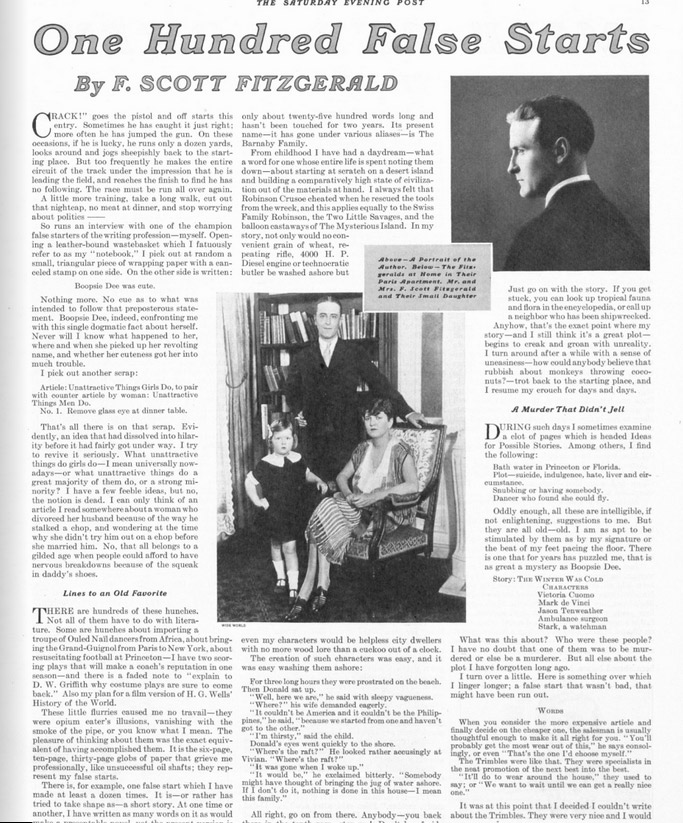For would-be and have-been novelists around the world, National Novel Writing Month (NaNoWriMo) is a time of excitement and self-discovery on one hand, but struggle and self-doubt on the other. Can I tell this story all the way through? Will people like it? Am I even telling the right story?
If you’re a writer and you find yourself struggling with your story, take heart: It happens to all authors all the time. No matter how great a writer you are, wonderful works of fiction don’t just fall from your pen.
F. Scott Fitzgerald was one of the greatest American storytellers of the 1920s and ’30s, and even his process of creating fiction was fraught with starts and stops, second-guesses, and outright failures. He writes, “It is the six-page, ten-page, thirty-page globs of paper that grieve me professionally, like unsuccessful oil shafts; they represent my false starts.”
Not getting the story right the first time is not a sign of failure as a writer. Perhaps you just haven’t dug into your experiences deeply enough to find the right story to tell. And according to Fitzgerald, your choices are actually quite limited: “Mostly, we authors must repeat ourselves — that’s the truth. We have two or three great and moving experiences in our lives … and we tell our two or three stories — each time in a new disguise — maybe ten times, maybe a hundred, as long as people will listen.”
Whether or not you agree with Fitzgerald’s estimation of the depth of a storyteller’s well of ideas, his success in the field is undeniable. On March 4, 1933, the Post published his “One Hundred False Starts,” offering readers a glimpse into how he collected story ideas and attempted — and often enough failed — to turn them into fiction he was proud of.

Become a Saturday Evening Post member and enjoy unlimited access. Subscribe now



